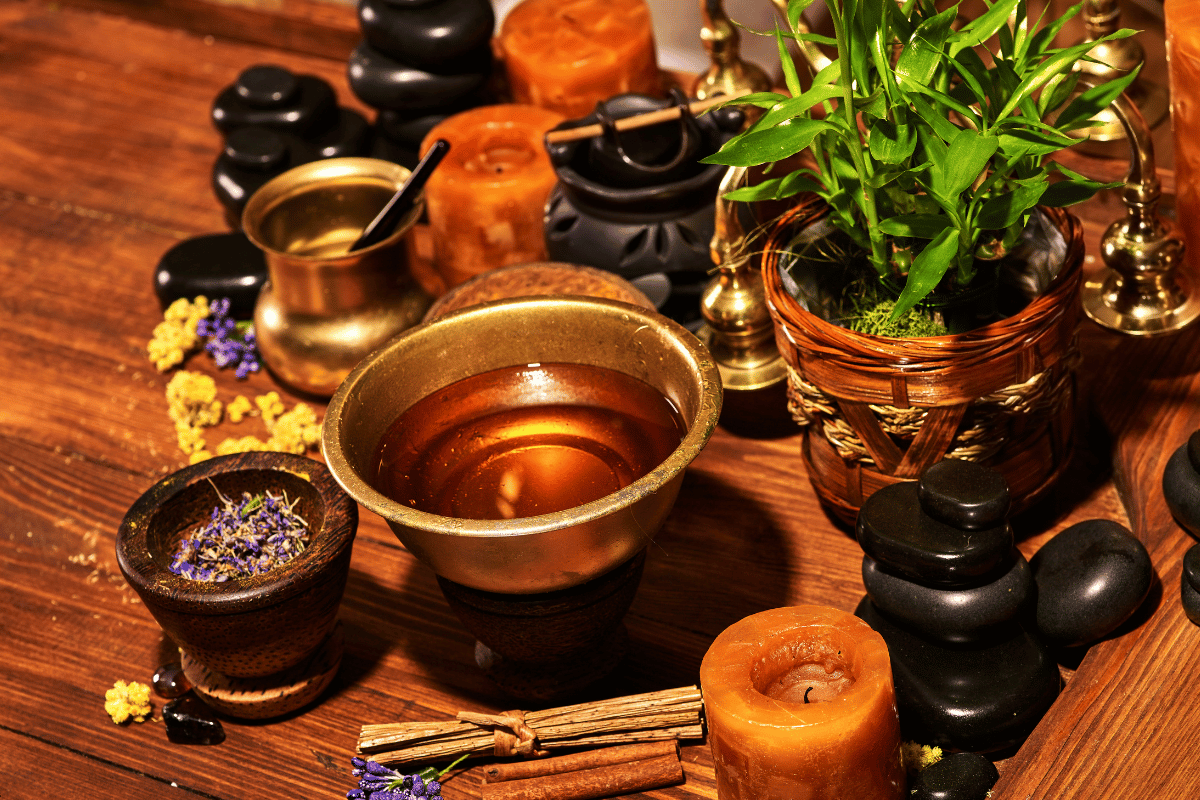
How Ayurveda Treats Insomnia: Herbs, Diet, and Daily Routine
Tossing and turning night after night? You're not alone in this struggle. Insomnia has become incredibly common, affecting countless people who desperately want quality sleep but can't seem to achieve it. While modern medicine offers quick fixes through sleeping pills, the ayurvedic treatment for insomnia takes a completely different approach, one that gets to the root of why you can't sleep in the first place.
The ayurvedic treatment for insomnia offers something different - a 5,000-year-old system that doesn't just mask symptoms but fixes the underlying problems causing sleep issues. Ayur Vaidya practitioners have been helping people sleep naturally for centuries, long before pharmaceutical companies existed.
Why Can't You Sleep? The Ayurvedic Answer
Traditional Ayur Vaidya doctors don't see insomnia as just one condition. They recognize three distinct types based on which dosha (body energy) has gone haywire. This understanding makes the ayurvedic treatment for insomnia so much more precise than generic approaches.
Vata-type insomnia shows up as a racing mind that won't shut down. People with this pattern often describe their thoughts as "spinning wheels" that keep them awake for hours. They might fall asleep eventually but wake up multiple times throughout the night, feeling exhausted in the morning.
Pitta insomnia creates a different problem. The body runs too hot, causing night sweats and overheating. These individuals often wake up around 2-4 AM feeling irritated and frustrated, their minds sharp and alert when they should be resting.
Kapha sleep issues are less common but involve feeling heavy and congested. Sleep comes easily, but isn't refreshing. People wake up groggy and tired despite spending plenty of time in bed. Experienced Ayur Vaidya practitioners spend considerable time identifying which pattern matches each person's experience. This detective work becomes crucial because insomnia ayurvedic treatment uses completely different herbs and approaches for each type.
Nature's Sleep Pharmacy: Ayurvedic Herbs That Work
The herbal medicine chest for insomnia ayurvedic treatment contains some remarkably effective plants. Ashwagandha has gained popularity recently, but Ayur Vaidya doctors have prescribed it for stress-related sleep problems for thousands of years. Research now confirms what they always knew: it significantly lowers cortisol levels and improves sleep quality.
Brahmi works differently. Instead of sedating the mind, it calms mental agitation while maintaining clarity. People using Brahmi often report that their thoughts become more organized and less chaotic at bedtime.
Jatamansi specifically targets the nervous system imbalances that keep Vata types awake. Its grounding effect feels like a gentle hand settling restless energy. Tagara provides natural sedation without the hangover effect of synthetic sleep aids.
What makes the ayurvedic treatment for insomnia effective is how Ayur Vaidya practitioners combine these herbs. They create personalized formulas based on individual constitution, current symptoms, and lifestyle factors. A formula for a busy executive with racing thoughts looks completely different from one designed for someone experiencing hot flashes and night sweats.
Eating Your Way to Better Sleep
Food choices dramatically impact sleep quality, a fact that Ayurveda has emphasized long before modern sleep research confirmed this connection. The timing, quantity, and type of food consumed in the evening can either promote or destroy good sleep.
Ayur Vaidya's recommendations focus on warm, cooked foods that are easily digestible. Raw salads, cold sandwiches, or heavy meals in the evening create internal disturbance that interferes with natural sleep patterns. Instead, simple cooked grains, warm milk with spices, or light soups provide nourishment without creating digestive stress.
Specific foods carry sleep-promoting properties. Almonds, soaked overnight and peeled, contain natural compounds that support neurotransmitter production. Dates provide quick energy that helps stabilize blood sugar through the night. Warm milk enhanced with nutmeg, cardamom, or a pinch of turmeric creates natural drowsiness.
The ayurvedic treatment for insomnia also emphasizes what foods to avoid. Caffeine disrupts sleep, but so do spicy foods, citrus fruits, and processed snacks consumed after 6 PM. These foods create internal heat and agitation that keep the mind active when it should be winding down.
Daily Rhythms That Restore Natural Sleep

Modern life has disconnected people from natural rhythms, but ayurvedic treatment for insomnia helps restore this crucial connection. Ayur Vaidya practitioners observe that the body follows predictable energy cycles throughout the day, and working with these patterns instead of against them makes sleep come much more easily.
The evening routine becomes particularly important. Between 6 and 10 p.m., Kapha energy naturally increases, creating heaviness and drowsiness. Fighting this natural tide by engaging in stimulating activities pushes the body into its second wind, making sleep much harder later.
Simple practices work remarkably well. An oil massage with warm sesame oil calms Vata energy and signals the nervous system to prepare for rest. Even five minutes of gentle self-massage on the feet and scalp can dramatically improve sleep quality. The insomnia ayurvedic treatment protocols also address modern challenges like screen time and artificial light exposure. The blue light from devices disrupts melatonin production, but more importantly, the mental stimulation keeps the mind engaged when it should be disengaging from daily concerns.
Through this comprehensive approach, ayurvedic treatment for insomnia offers hope for people who have tried everything else without success. Rather than depending on pills or quick fixes, it rebuilds the body's natural ability to sleep deeply and wake refreshed.